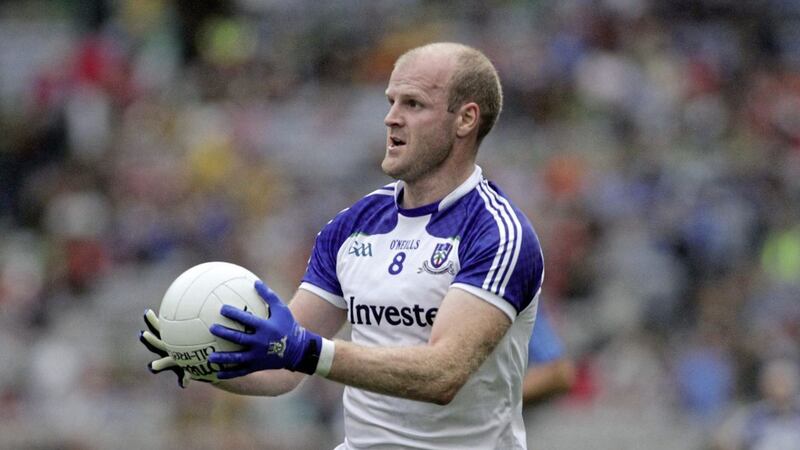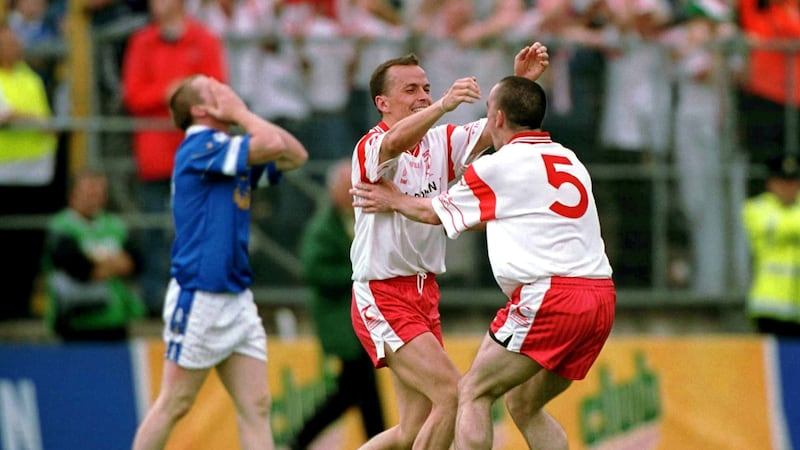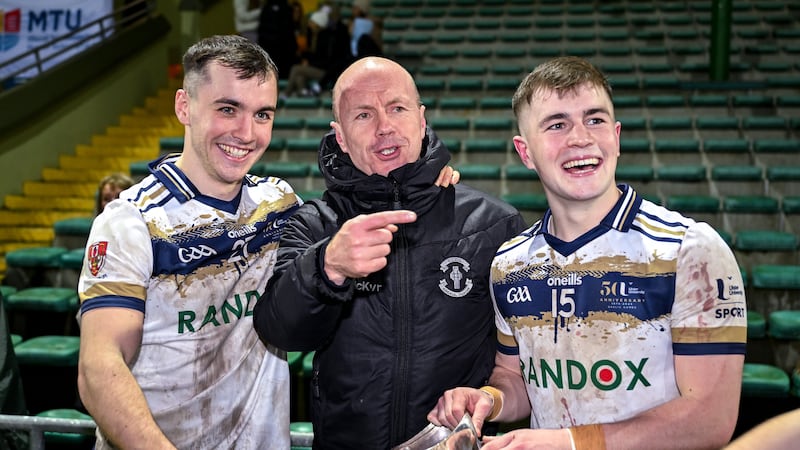THE GAA’s patient approach to lifting lockdown is partly because it does not want to “contribute to a step back” for society, says Dick Clerkin.
The former Monaghan midfielder is a member of the GAA’s Covid-19 advisory group and appeared last night on The Sunday Game programme on RTÉ2, alongside Colm O’Rourke and former Galway hurler and sports psychologist Tony Óg Regan.
Clerkin’s tone was generally more upbeat than that of president John Horan when he appeared on the programme three weeks ago, but the Currin clubman still urged patience among GAA members.
The association will move to reopen pitches and walkways for socially-distanced activities in line with the Irish government, which is set to make its latest move out of lockdown next Monday, June 8.
A host of GAA personalities last week called for the reopening of pitches, but Clerkin last night said that the cautious approach being taken by headquarters was necessary.
“You have to be conscious of the scale of the GAA. In many ways, the size and membership of the GAA is its greatest strength. When it comes to this public health issue, it’s arguably its greatest challenge.
“You’ve over 500,000 playing members, and then you include parents, grandparents. En masse, it’s potentially such a massive impact on the overall public health issue.
“It’s not just an isolated club – it’s every corner of the country.
“Arguably it [the GAA] had a huge impact at the start of this pandemic when it took the quick lead to close down. All the positive news from a transmission point of view, you’d think the GAA had a massive impact on that.
“Equally, if you move too soon, because of the sheer volume and scale of the membership, you don’t want to be in a position where you’re contributing to a step back, you have to be a wee bit more conservative because of the pure size and scale of the organisation.”
Some professional sports have returned to play in recent weeks, led by German football’s Bundesliga. It will be followed in the coming weeks by the Premier League, which is due to resume on June 17.
Four clubs, including Derry City, will restart training next Monday as part of a pilot tournament that will test the viability of a safe return to the Airtricity League.
Rugby had planned to move into a return to training for professional teams in mid-May, but that move was postponed after the government listed the sport’s reboot as part of its final stage of plans.
The GAA has previously said that there will be no inter-county activity until at least October, and that while club action would not return for a lengthy period either, there was no definitive restart date in place.
Clerkin says they will be in a better position to judge potential dates when the impact of professional sports on society and transmission rates of Covid-19 is measured, but reiterated that the GAA could not follow their lead at this stage.
“There’s a difference between recreational and controlled training,” he told The Sunday Game.
“But moving to full-contact training, and that moves into full-contact playing, that’s a different risk level. That’s still very much under review. That’s not just a GAA issue, there’s rugby, soccer, all the other sports.
“[A return to play] would be strictly based on medical grounds, in terms of looking at the risk profile of Gaelic Games.
“We’re involved in the return to play Government think-tank on this, so we’re very much being advised by them.
“We will learn an awful lot over the next couple of months in terms of how the professional sports that are back playing, the transmission rates among players, we’ll be taking all that information.
“There’s an awful lot of work going on but it is complex because the GAA is unique anyway.
“But in this circumstance it’s even more complex, because we don’t have the resources the professional sports have to do the testing and cocooning of the players. Everyone’s community based and we have to be very conscious of that.”








